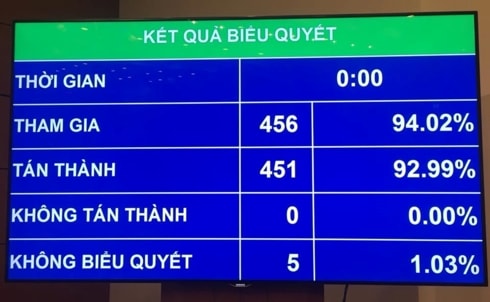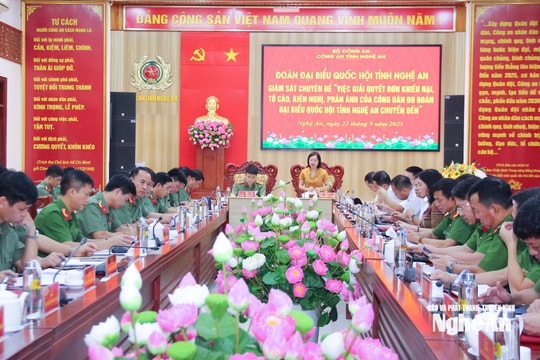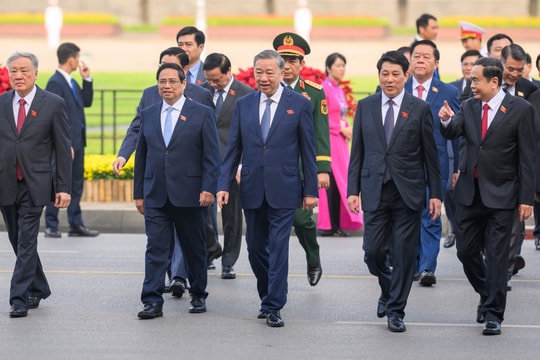Passing the Amended Amnesty Law: No amnesty for the crime of destroying facilities
The Amnesty Law (amended) has just been passed by the National Assembly with 92.99% of the total number of delegates agreeing to the regulation that there will be no amnesty for the crime of destroying detention facilities.
On the afternoon of November 19, presenting the report on acceptance and explanation, Chairwoman of the Judiciary Committee Le Thi Nga said that, accepting the opinions of National Assembly deputies, the supplementary Law does not propose amnesty for those who commit crimes of destroying material and technical facilities of the Socialist Republic of Vietnam or crimes of destroying detention facilities.
At the same time, based on the specific situation in each amnesty period, the Law assigns the President to decide not to grant amnesty in other cases.
|
| Voting rate to pass the Amnesty Law project (amended), afternoon of November 19. |
Regarding the conditions for amnesty, the Law stipulates that the President decides that the time served in prison is shorter than the prescribed time when falling into one of the following cases: People suffering from a serious illness; people who are frequently sick and cannot take care of themselves with the conclusion of the Medical Examination Council, Provincial or Military Region Hospital or higher; People aged 70 or older; Pregnant women or women with children under 36 months old who are living with their mothers in prisons, temporary detention camps, or temporary detention houses; People with especially difficult family circumstances and being the only laborer in the family, with confirmation from the People's Committee of the commune where the family resides...
Another noteworthy point is that the Law stipulates cases where special amnesty is proposed even though only a part of the obligation to return property, compensate for damages, and other civil obligations has been performed, but due to particularly difficult economic circumstances, there are no conditions to continue performing the remaining part according to the provisions of the law on civil judgment enforcement for persons sentenced to imprisonment.
In case of having to perform the obligation to return property, compensate for damages, or other civil obligations regarding property not owned by the State, the person subject to enforcement must agree to postpone the enforcement of the judgment or not request enforcement of the judgment regarding this property.
Chairwoman of the Judiciary Committee Le Thi Nga said that there were opinions suggesting clarifying which agency is responsible for monitoring and urging pardoned persons to fulfill their commitments on compensation for damages, other civil obligations and sanctions if pardoned persons do not fulfill their commitments after being pardoned.
According to the Standing Committee of the National Assembly, the responsibilities of agencies, organizations and individuals in the enforcement of civil judgments in general and the enforcement of the civil part of criminal judgments in particular have been specifically stipulated in the Law on Enforcement of Civil Judgments and related legal documents. Relevant agencies, organizations and individuals shall base on the above documents to organize the enforcement./.







.jpg)

